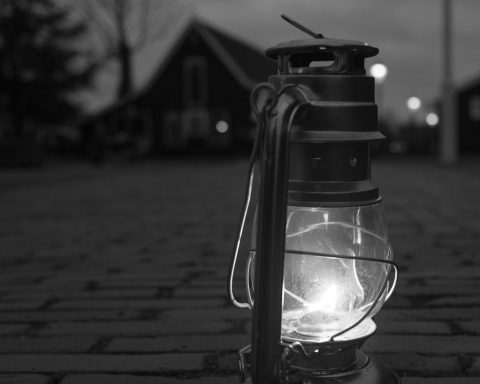Three pastors from different denominations reflect on their work together in a small town in Iowa, where ecumenical collaboration is simply a way of life.
Rev. Catherine Belles, Presbyterian Church (U.S.A.)

A couple of weeks ago while eating breakfast, I found myself reading a few articles about interdenominational ministry from this issue of Unbound. Later that day, I presided at the funeral of a beloved woman who was raised Presbyterian married into the United Methodist Church. I was struck during the graveside committal service led by Msgr. Brunken. He led us in the Catholic service of committal, and the final litany began so quietly: “All praise to you, Lord of all creation. Praise to you, holy and living God. We praise and bless you for your mercy; we praise and bless you for your kindness. Blessed is the Lord, our God.” Just Walter’s voice calling us to respond: “Blessed is the Lord, our God.”
As the lines continued, our voices grew more assured and we all called out together in loud triumphant voices, “Blessed is the Lord, our God.” We were a mixed group – United Methodist, Church of the Brethren, Presbyterian Church (U.S.A.), Catholic, and “Nones”, but for that time we were one group, responding to sorrow, love, and God’s surety.
___________________________________________
Life in small rural towns would be very difficult without ecumenism.
___________________________________________
At age 57, a second career as an ordained minister serving yoked parishes – Eden Presbyterian church in Rudd, IA, and First Presbyterian Church Greene, IA – is the fulfillment of a dream I never believed would be fulfilled. I graduated from Union Presbyterian Seminary in 2013; along with being new to rural ministry, I am new to pastoral ministry in general! Suffice it to say that it has been an exciting and frantic year of learning.

Greene, IA, is a small town in rural north/central Iowa. The once-numerous small family farms are now combined into larger farms requiring fewer human workers, and the towns have shrunk and aged. Greene has five churches: Lutheran (ELCA), Catholic, Baptist, United Methodist (UMC)/Church of the Brethren, and PC(USA). Pastor Ann Donat serves the UMC and Church of the Brethren, which combined a few years ago. Ann also serves two other UMC congregations in this area. My PC(USA) church is yoked with another PC(USA) congregation some 35 miles away. Msgr. Brunken serves three Catholic congregations. The Lutheran and Baptist congregations are able to support one full time pastor, who also collaborates with us in ministry.
We are too few people with too few resources for what many would call ‘generous living, and yet our town is filled with generous living! Community life here is focused on interesting and service-oriented events, to fund common services like the volunteer fire department, library, park, and school (a combined middle and high school for several towns). We sometimes sink into moaning about too few resources, but for the most part we work together and share time, energy, and expertise to insure needs are met and care provided.
___________________________________________
We were a mixed group – United Methodist, Church of the Brethren, Presbyterian Church (U.S.A.), Catholic, and “Nones”, but for that time we were one group, responding to sorrow, love, and God’s surety.
___________________________________________
One great example of this ecumenical collaboration in our day-to-day life is our parish nurse program. Two part-time parish nurses work within the health and food security network to answer medical issues and questions. With the dearth of medical personnel in the area and the distance to hospitals (combined with terrible weather), knowing when to call for an ambulance and when to wait for a doctor appointment is crucial, and our parish nurses are able to help with those determinations and many less-urgent needs.
 Many such committees exist in Greene, and they work well because of the network aspect. And of course, many of these volunteers gained their ability to work in committees – you guessed it – from church!
Many such committees exist in Greene, and they work well because of the network aspect. And of course, many of these volunteers gained their ability to work in committees – you guessed it – from church!
While our regular worship services take place in our individual congregations, many special events are combined, such as Advent and Lent midweek services and our Vacation Bible School program.
Monsignor Walter Brunken, Roman Catholic Church
I have been a Catholic Priest for 59 years. I spent three years in Charles City as a pastoral assistant, then 32 years in Catholic education, 25 of which I spent as principal of Columbus High in Waterloo. I’ve been here in Greene (population of about 1,000) for 24 years. I also pastor congregations in Roseville and Rockford. Here in Greene, I am involved in the Commercial Club, Greene Betterment, Library Board, Senior Citizens Board, Greene Parish Nurses, and Trees Forever. I am also on several Boards at the Archdiocesan Level
Life in small rural towns would be very difficult without ecumenism. The Commercial Club, Greene Betterment, Library Board, City Hall, Country Club, American Legion, and other groups are successful only insofar as the ecumenical spirit pervades the organization. By that, I don’t meant that religion is a topic on the agenda, but rather that the members represent all beliefs and work together in harmony and good will.

For 20 years, I have been meeting every week with other ministers to discuss the coming Sunday’s scripture readings. Over these years our group has or has had representatives from: the United Church of Christ (UCC), ELCA, Roman Catholic Church, PC(USA), UMC, Reformed Church, and Church of the Brethren. I have shared weddings, funerals, and thanksgiving services. One year the four ministers of the different churches even had a special float in the annual parade! We take turns in leading services at the local Care Center. When a scheduling conflict arises, it is easy to switch with another minister.
One of the most notable successes of this town is the Ecumenical Vacation Bible School. All faiths present in the community are represented. The Catholic Priest teaches the 5th grade in the Presbyterian Church. Classes are held in each of the churches, and no one questions to what faith community the teachers belong. It is wonderful to witness the support the different churches receive when a festival or dinner or some sort of celebration is held. The whole community gets behind the event, and we enjoy one another’s company.
Rev. Ann Donat, United Methodist Church

I am a second career pastor who spent her first career in special education. Since then, I have served as a pastor to small community churches for 12 years.
Working and living in small communities lends itself well to working with all denominations, developing partnerships that benefit everyone involved. Each time I have entered a new community, I have sought out the other pastors in the area and developed relationships. Together, we then look at each of our churches’ strengths alongside the strengths and needs of the community. Some activities we have done on our own, but more often we find ways to work together to provide a richer, broader experience for all.
Out of these experiences I have seen joint worship services that became foundational for the community’s ability to reach out to those in need in the area. A backpack program was started that not only served the local community but eventually the entire county, providing food and support for elementary students in the area. Something like that would have been an overwhelming task for an individual church, but it turned feasible when it became an activity that all came together to support.
Other activities have included joint Bible Schools, worship services for Lent and Advent, Thanksgiving, and special services for those working at the local fair. The list has grown – and continues to grow – as those of us in the community have discovered that together, we can do so much more!
*****





Unbound Social